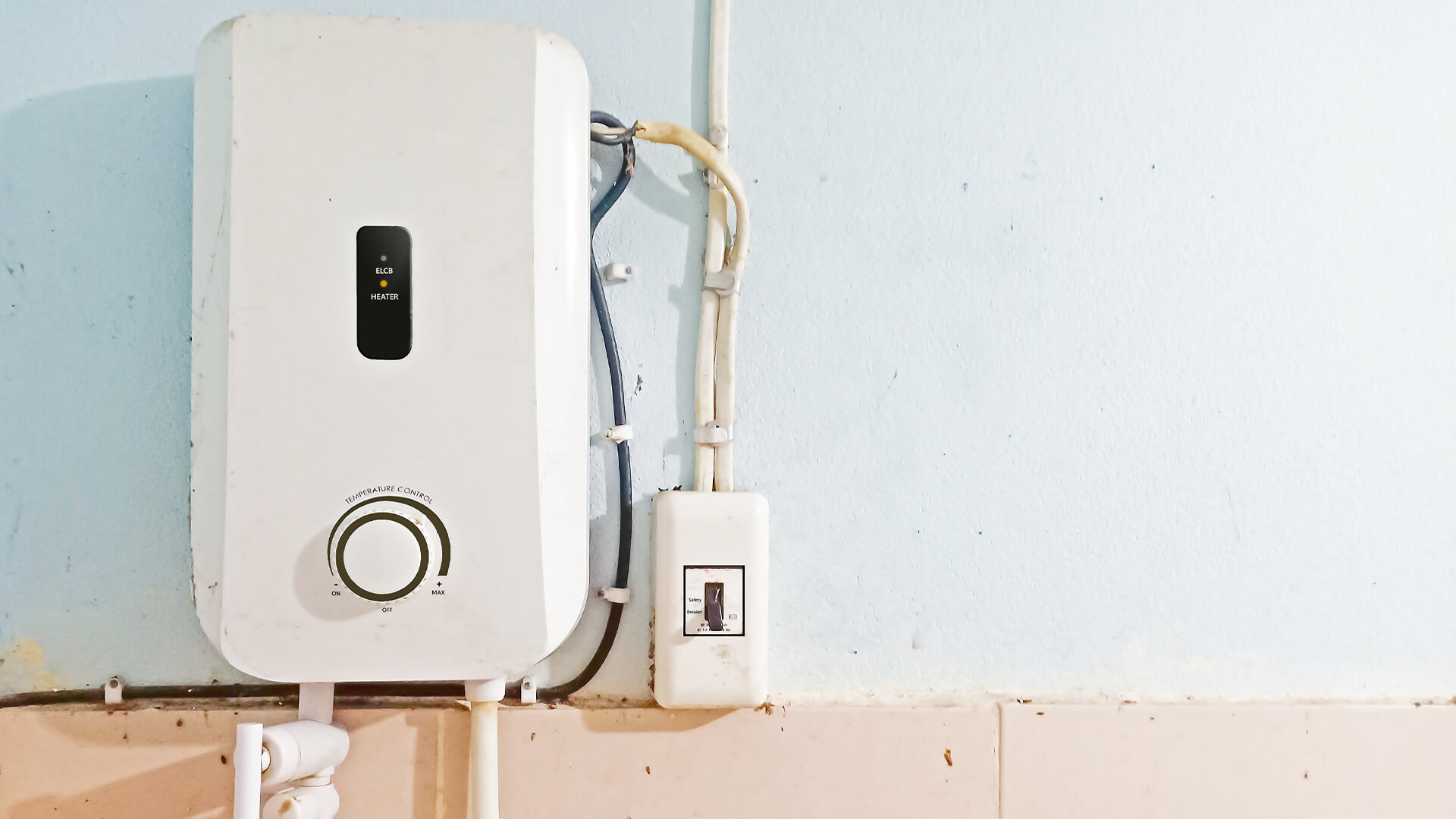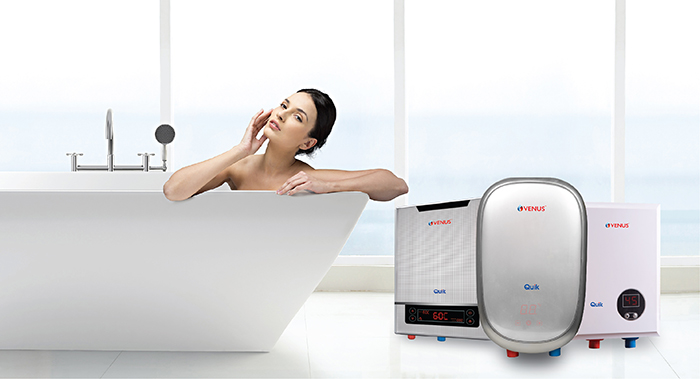How Continuous-Flow Water Heaters Grant Important Benefits
How Continuous-Flow Water Heaters Grant Important Benefits
Blog Article
How do you feel in regards to Why You Should Consider a Tankless Water Heater?

In a world where comfort and efficiency preponderate, it's not a surprise that home owners are constantly on the lookout for smarter methods to manage their home's power consumption and comfort. One innovation that has gradually obtained popularity is the tankless hot water heater. But what exactly makes these systems attract attention from the conventional tank-based models most of us grew up with? Allow's dive in and check out the advantages of tankless hot water heater, assisting you determine if it's time to make the button in your house.
Intro
Photo this: you step into the shower after a lengthy day, expecting a soothing waterfall of hot water, only to be welcomed by icy droplets since the last person utilized it all up. Audio familiar? Standard hot water heater keep a set amount of hot water, implying you're at the grace of that tank's supply. Tankless systems, on the other hand, warm water on demand. Say goodbye to running out mid-shower, say goodbye to wrestling with timetables just to make certain hot water is offered.
Understanding Tankless Water Heaters
What Are Tankless Hot Water Heater?
Tankless hot water heater, often called on-demand or instant water heaters, offer hot water just as it's required. As opposed to storing gallons of pre-heated water, these systems kick right into action the minute you turn on the tap. Water passes through a heat exchanger, heating up in real-time, meaning you obtain an uninterrupted circulation of warm water without the requirement for a big storage tank resting lazily by.
Exactly how Do They Vary from Conventional Solutions?
Typical heating systems hold a reservoir of hot water, using energy to maintain that storage tank at a regular temperature level. Tankless systems get rid of the standing supply, minimizing lost power and the cumbersome impact of a large cylinder. Basically, you're updating from a "accumulation" attitude to a "made-to-order" strategy.
Common Types of Tankless Systems
Tankless hot water heater usually come in two ranges: gas and electric. Gas designs have a tendency to provide greater flow prices, ideal for larger households, while electrical versions often serve smaller sized homes and are usually easier to install. Furthermore, some systems are developed for point-of-use (serving one fixture) while others can deal with the entire home's hot water needs.
Key Advantages of Tankless Hot Water Heater
Power Performance and Price Financial Savings
Say goodbye to heating a giant tank's well worth of water and maintaining it warm all the time. Tankless heaters decrease standby energy losses, which can lower energy bills. While the first expense could be higher, the long-lasting savings usually warrant the financial investment.
3. Space-Saving Design
If your home is short on storage, getting rid of the large tank liberates valuable room. Tankless systems are small and can frequently be installed on wall surfaces, stashed in edges, or mounted in limited energy storage rooms without gobbling up the entire area.
4. Longer Life-span
A well-kept tankless water heater can outlive its tank-based cousin. Standard tanks may last 10-15 years, while tankless designs can maintain chugging along for twenty years or even more, making them a solid investment with time.
1. Countless Hot Water Supply
Ever needed to arrange showers so everyone gets their fair share of hot water? With tankless, that ends up being a thing of the past. As long as the heating unit's flow ability isn't gone beyond, you can take back-to-back showers without becoming a popsicle.
5. Improved Water Top Quality
Saving water in a storage tank can often cause debris buildup or a somewhat "off" taste. With tankless systems, fresh water is warmed instantly, reducing the possibilities of sediment buildup and potentially using cleaner-tasting water.
Considerations Before Changing
Though the benefits are engaging, it's a good idea to take into consideration a couple of factors prior to totally devoting.
Reviewing Your Home's Water Use Patterns
If your family all at once utilizes multiple components with high warm water demand, make sure the system's flow price fulfills your demands. Understanding your usage patterns assists you choose the appropriate dimension and type of tankless heating system.
Maintenance and Treatment Tips
Tankless systems are relatively reduced upkeep, however they aren't set-it-and-forget-it home appliances.
Regular Cleansing and Descaling
Hard water minerals can accumulate in the warm exchanger, impacting effectiveness. Regular descaling (often suggested every year) keeps the device running at peak performance.
Annual Professional Assessments
A yearly checkup from an expert guarantees small concerns are captured early. They'll analyze the unit's performance, look for leaks, and help maintain ideal effectiveness.
Preliminary Investment Costs
Tankless heating units normally include a greater in advance price tag. In between the system itself and prospective installation alterations, the first expense might offer you sticker shock. However bear in mind to view it as a long-lasting financial investment.
Installation Demands
Relying on your home's infrastructure, you may require additional electrical capability or gas line upgrades. Ensure you comprehend the installment needs and consult with an expert to prevent surprises.
Ensuring Appropriate Air Flow
For gas models, proper air flow is necessary to safely remove exhaust gases. See to it airing vent systems are clean and appropriately installed to prevent any prospective security threats.
Comparing Different Brands and Models
Not all tankless hot water heater are developed equivalent.
Looking Into Trusted Suppliers
Seek reliable brands with a background of creating quality systems. A dependable manufacturer often provides better client support and longer guarantees.
Installation: Do It Yourself or Professional?
While some house owners enjoy taking on projects themselves, tankless installment might not be the very best time to burst out the toolbox.
Benefits and drawbacks of DIY Setup
A DIY set up could save money, but it includes risks. Wrong installation can cause inefficiency or safety and security issues. If you're handy and have experience, it might be feasible-- but proceed with caution.
Checking Out Evaluations and Individual Feedback
Individual evaluations and comments from neighbors or good friends that have gone tankless can offer beneficial understandings. Often, real-life experiences can be a lot more telling than marketing sales brochures.
When to Call an Expert Plumber
For the majority of, calling a pro guarantees every little thing's done properly. A specialist plumber comprehends neighborhood codes, sizing requirements, and venting parameters, minimizing the threat of mishaps.
Maximizing Efficiency
You've purchased a tankless system-- now maximize its performance.
Optimal Temperature Level Settings
Most individuals establish their devices in between 120-140 F. Changing the temperature can enhance comfort and financial savings. Experiment to locate a wonderful area that does not throw away power.
Coupling With Low-Flow Fixtures
Intend to stretch your unit's capabilities? Consider installing low-flow showerheads and taps. They minimize water usage, enabling your tankless system to provide a stable stream of warm water without stressing.
Environmental Influence
Tankless hot water heater align with greener living objectives.
Decreased Carbon Impact
By utilizing less power and only home heating water as needed, tankless systems can lower your home's carbon impact, lowering your environmental influence.
Conserving Natural Resources
Less power intake and less squandered warm water convert into fewer natural resources being used, an environmental win-win.
Who Benefits Most from Tankless Heating systems?
The elegance of tankless heating units is that they can fit a variety of households.
Huge Households vs. Single Passengers
Large households may like the limitless warm water supply, while single residents value the power financial savings from not warming a whole storage tank for just one person's morning shower.
Home Owners with Minimal Area
If your home is short on square footage, shedding the large storage tank liberates space for other basics-- or perhaps just a lot more elbow room.
Eco-Conscious Consumers
Going tankless aligns with eco-friendly values, guaranteeing you're not squandering power or resources.
Future Fads in Tankless Water Heaters
The globe of home devices is ever-evolving, and tankless hot water heater are no exemption.
Developments in Technology
R&D is constantly enhancing warmth exchangers, making systems much more efficient and resilient. Future versions could be also quieter, more compact, and much better matched for differing environments.
Smart Home Integration
Imagine adjusting your water heater's temperature through an app or getting maintenance notifies on your phone. As wise home technology breakthroughs, we'll see even more connection and comfort.
Final thought
Selecting a tankless water heater is more than just upgrading your home's warm water system; it's investing in long-lasting convenience, energy performance, and a greener lifestyle. By considering your family's water usage, being mindful of installment requirements, and dedicating to routine upkeep, you can delight in a stable stream of warm water without the luggage of a cumbersome storage tank. As technology progresses, you can anticipate even smarter, a lot more reliable tankless solutions that not only make your life simpler but additionally profit the planet.
5 Benefits of Tankless Water Heaters
Save Valuable Space
Since tankless water heaters do not have a massive 40+ gallon tank of water, they are considerably smaller and can fit in more narrow spaces in your home.
If you are working with limited square footage, a tankless water heater will still provide you with the hot water you need while taking up significantly less space in your home. While the exact size of a tankless water heater varies depending on the brand, some are as small as a carry-on suitcase.
Endless Supply of Hot Water
While a traditional water heater preheats and stores your water in the tank, tankless water heaters do not rely on a reservoir system.
This means that they do not run out of hot water like traditional water heaters since they make hot water as needed. Traditional water heaters need to stop and reheat water when the tank inevitably runs out, but tankless water heaters do not have this issue.
Provide Warm Water On-Demand
As mentioned above, tankless water heaters do not preheat a certain amount of water and then store it in a massive tank to be used later. An advantage of installing a tankless water heater includes water being heated instantly whenever you turn on the faucet.
When you turn on the water, it will travel through a heat exchanger in the unit and be heated with either an electric element or a natural gas burner. Gone are the days of having to ration out your hot water to make sure that you do not run out.
Longer Life Cycle
Not only do tankless water heaters provide an endless supply of hot water for your home whenever you want it, but these units tend to have a longer lifespan than water heaters with tanks.
Tanked water heaters have an average lifespan of around 10 years, as the tank is prone to corrosion, leading to serious issues. In comparison, tankless water heaters can last for around 15 to 20 years with the proper maintenance and tune-ups.
Energy Efficient
Compared to traditional water heaters, tankless water heaters are a more energy-efficient water heating option for your home. Tank water heaters must heat and reheat the water stored in the tank throughout the day, even if you are not home.
This energy use adds up over time, leading to an increase in your energy bills and added strain on your unit. A benefit of buying a tankless water heater includes saving money since it only operates when you turn on the hot water. Since it only heats up as needed, this can decrease your energy bills and save you money in the long run.
https://callrandazzo.com/blog/5-benefits-of-tankless-water-heaters/

I'm just very interested in Why You Should Consider a Tankless Water Heater and I hope you liked the new entry. Are you aware of another individual who is interested in the topic? Why not promote it. We truly appreciate reading our article about .
About Report this page